How did our species succeed in the battle for dominance Why did our foraging ancestors come together to create cities and kingdoms How did we come to believe in gods nations and human rights to trust money books and laws and to be enslaved by bureaucracy timetables and consumerism And what will our world be like in the millennia to come
Sapiens: A Brief History of Humankind
KShs 595.00
How did our species succeed in the battle for dominance Why did our foraging ancestors come together to create cities and kingdoms How did we come to believe in gods nations and human rights to trust money books and laws and to be enslaved by bureaucracy timetables and consumerism And what will our world be like in the millennia to come
1 in stock
| SKU: | 9780099590088 |
|---|---|
| Categories: | Historical Biographies, History books |
Related products
-
-
Afro-European Trade in the Atlantic World The Western Slave Coast, c. 1550- c. 1885
KShs 14,560.00From 1550 to colonial partition in the mid-1880s, trade was key to Afro-European relations on the western Slave Coast (the coastal areas of modern Togo and parts of what are now Ghana and Benin). This book looks at the commercialrelations of two states which played a crucial role in the Atlantic slave trade as well as the trade in ivory and agricultural produce: Hula, known to European traders as Grand Popo (now in Benin) and Ge, known as Little Popo (nowin Togo). Situated between the Gold Coast to the west and the eastern Slave Coast to the east, this region was an important supplier of provisions for Europeans and the enslaved Africans they purchased. Also, due to its positionin the lagoon system, it facilitated communication along the coast between the trading companies’ headquarters on the western Gold Coast and their factories on the eastern Slave Coast, particularly at Ouidah, the Slave Coast’s major slave port. In the 19th century, when the trade at more established ports was disrupted by the men-of-war of the British anti-slave trade squadron, the western Slave Coast became a hot-spot of illegal slave trading.
Providing a detailed reconstruction of political and commercial developments in the western Slave coast, including the transition from the slave trade to legitimate commerce, this book also reveals the region’s position in the wider trans-Atlantic trade network and how cross-cultural partnerships were negotiated; the trade’s impact on African coastal “middlemen” communities; and the relative importance of local and global factors for the history of a region or community.Silke Strickrodt is Visiting Research Fellow at the Department of African Studies and Anthropology at the University of Birmingham. She is co-editor (with Robin Law and Suzanne Schwarz) of Commercial Agriculture, the Slave Trade and Slavery in Atlantic Africa (James Currey, 2013).
-
From the land of Pashtuns to the land of Maa
KShs 2,000.00From the Land of Pashtuns to the Land of Maa: Memoir (2013) Kenyan-born Khan traces his father’s journey from his village in India (now within Pakistan) to Kenya in 1929, alone, at the age of 18 after a family dispute.
Here is the story of migration, of Khan’s father and other Pashtuns (mainly from the Punjab Province of Pakistan), to the Maasai tribal lands in rural Kenya. His father, Juma Khan, raised 18 children from two wives: the first was a Maasai woman who assumed a Muslim name after marriage, and the second was the daughter of a Pakistani father and Maasai mother. It was a time of colonial rule when mixed marriages – and children from them – were regarded with discrimination.
-
Remaking Mutirikwi: Landscape, Water and Belonging
KShs 9,100.00Finalist for the African Studies Association 2016 Melville J. Herskovits Award
The Mutirikwi river was dammed in the early 1960s to make Zimbabwe’s second largest lake. This was a key moment in the Europeanisation of Mutirikwi’s landscapes, which had begun with colonial land appropriations in the 1890s. But African landscapes were not obliterated by the dam. They remained active and affective. At independence in 1980, local clans reasserted ancestral land claims in a wave of squatting around Lake Mutirikwi. They were soon evicted as the new government asserted control over the remaking of Mutirikwi’s landscapes. Amid fast-track land reform in the 2000s, the same people returned again to reclaim the land. Many returned to the graves and ruins of past lives forged in the very substance of the soil, and even incoming war veterans and new farmers appealed to autochthonous knowledge to make safe theirresettlements. This book explores those reoccupations and the complex contests over landscape, water and belonging they provoked. The 2000s may have heralded a long-delayed re-Africanisation of Lake Mutirikwi, but just as African presence had survived the dam, so white presence remains active and affective through Rhodesian-era discourses, place-names and the materialities of ruined farms, contour ridging and old irrigation schemes. Through lenses focused on the political materialities of water and land, this book reveals how the remaking of Mutirikwi’s landscapes has always been deeply entangled with changing strategies of colonial and postcolonial statecraft. It highlights howthe traces of different pasts intertwine in contemporary politics through the active, enduring yet emergent, forms and substances of landscape.
Joost Fontein is Director of the British Institute in Eastern Africa and Lecturer in Social Anthropology at the University of Edinburgh.
Published in association with the British Institute in Eastern Africa.
-
History as destiny and history as knowledge
KShs 3,599.00Brief Summary
History as destiny and history as knowledge: being reflections on the problems of historicity and historiography -
Women, Land and Justice in Tanzania (African Edition)
KShs 2,000.00Recent decades have seen a wave of land law reforms across Africa, in the context of a “land rush” and land-grabbing. But how has this been enacted on the ground and, in particular, how have women experienced this? This book seeksto re-orientate current debates on women’s land rights towards a focus on the law in action. Drawing on the author’s ethnographic research in the Arusha region of Tanzania, it explores how the country’s land law reforms have impacted on women’s legal claims to land. Centring on cases involving women litigants, the book considers the extent to which women are realising their interests in land through land courts and follows the progression of women’s claims to land – from their social origins through processes of dispute resolution to judgment.
Dancer’s work explores three central issues. First, it considers the nature of women’s claims to land in Tanzanian family contexts,the value of land in an era of land reform and the ‘land rush’ across Africa, and the extent to which the social issues raised are addressed by Tanzania’s current laws and legal system. Secondly, it examines how agency and power relations between social and legal actors engaged in legal processes affect women’s access to justice and the progression of claims. Thirdly, it explores Tanzanian concepts of justice and rights and how women’s claims have been judged by land courts in practice.Helen Dancer is a lecturer in Law at the University of Brighton. She practised as a barrister in England specialising in family legal aid cases prior to training as a legal anthropologist. She is also a consultant for Future Agricultures at IDS, University of Sussex. Her areas of research interest include law and development, gender and land, and human rights and legal pluralism.
-
Land, Migration and Belonging
KShs 14,560.00Tracing the history of the Basotho, a small mainly Christianised community of evangelists working for the Dutch Reformed Church, this book examines the challenges faced by minority ethnic groups in colonial Zimbabwe and how they tried to strike a balance between particularism and integration. Maintaining their own language and community farm, the Basotho used ownership of freehold land, religion and a shared history to sustain their identity. The author analyses the challenges they faced in purchasing land and in engaging with colonial administrators and missionaries, as well as the nature and impact of internal schisms within the community, and shows how their “unity in diversity”impacted on their struggles for belonging and shaped their lives. This detailed account of the experiences and strategies the Basotho deployed in interactions with the Dutch Reformed Church missionaries and colonial administrators as well as with their non-Sotho neighbours will contribute to wider debates about migration, identity and the politics of belonging, and to our understanding of African agency in the context of colonial and missionary encounters.
Published in association with the British Institute in Eastern Africa
-
Eastern Approaches-FITZROY MACLEAN
KShs 400.00The classic true adventure story of a man who, by the pen, sword, and diplomatic pouch, influenced some of the most significant events of our era. Fitzroy Maclean recounts his extraordinary adventures in Soviet Central Asia; in the Western Desert, where he specialized in hair-raising commando raids behind enemy lines; and with Tito’s partisans during the last months of the German occupation of Yugoslavia. An enthralling narrative brilliantly told.

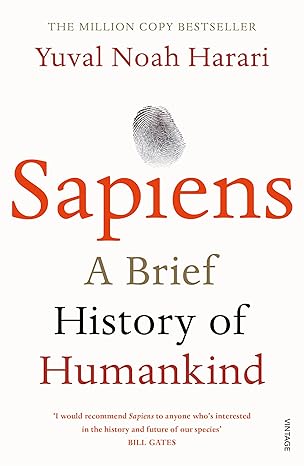
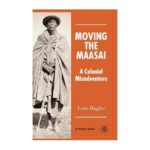
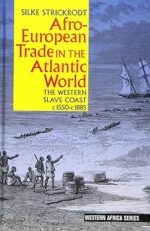
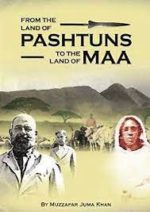
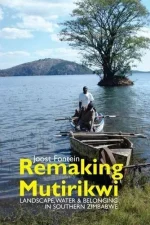
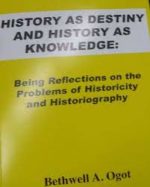
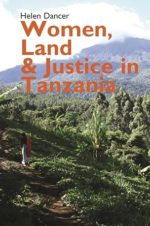


Be the first to review “Sapiens: A Brief History of Humankind”